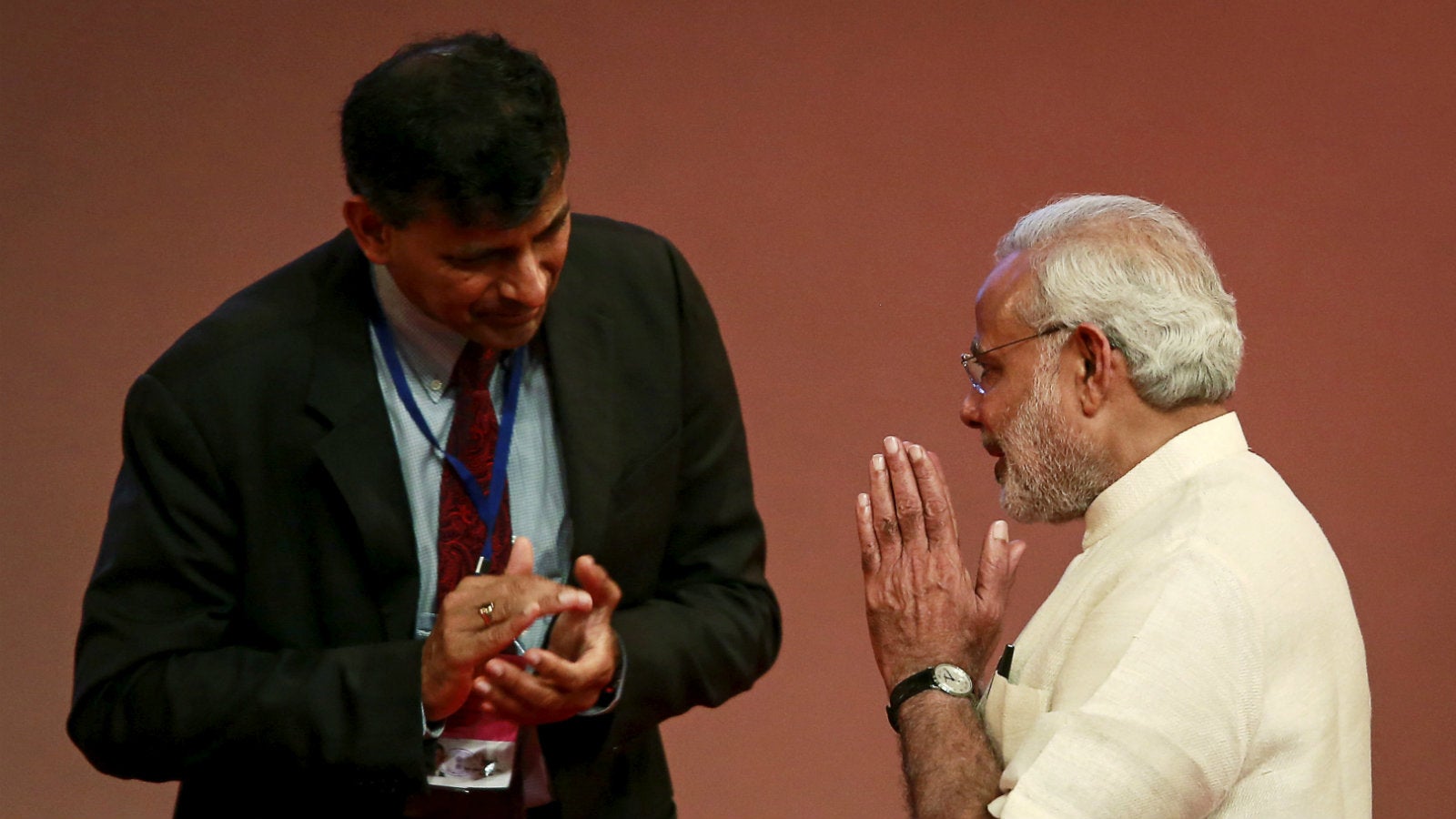Will Raghuram Rajan’s exit scar Modi’s attempts at wooing NRIs?
In May, Bharatiya Janata Party (BJP) lawmaker Subramanian Swamy wrote to prime minister Narendra Modi questioning Reserve Bank of India (RBI) governor Raghuram Rajan’s loyalty towards India, since he has been a non-resident Indian (NRI) for years.


In May, Bharatiya Janata Party (BJP) lawmaker Subramanian Swamy wrote to prime minister Narendra Modi questioning Reserve Bank of India (RBI) governor Raghuram Rajan’s loyalty towards India, since he has been a non-resident Indian (NRI) for years.
Swamy asked Modi to terminate Rajan’s appointment because the governor apparently wasn’t “mentally not fully Indian” and was part of a “deliberate attempt to wreck the Indian economy.”
Rajan, on leave from the University of Chicago’s Booth School of Business, is an Indian citizen who holds a green-card, which allows him residence permit in the US. On June 18, Rajan announced that he won’t be seeking a second term as governor.
While Rajan’s exit is being called a “national loss” by India Inc, N R Narayana Murthy, Infosys founder and former CEO, even cautioned that it may have an effect on other NRIs.
“I hope his leaving will not make other green-card holders of Indian origin in the US and Indian permanent residents of other countries less confident about adding value to India,” Murthy said in a statement. ”These people are no less committed to India than the Indian residents in India.”
NRIs can add value to the country at “this critical juncture when we need to grow at 10% and create at least 10 million jobs every year to solve the problem of poverty,” Murthy said. He went on to say that India must introduce dual citizenship soon.
Although such policy changes may be wishful thinking for the immediate future, Rajan’s surprise move may, indeed, set accomplished NRI academics thinking.
“It’s a sad day. It is worrisome that the political leadership has so little stomach for far-reaching reforms. Yes, this decision does make me more reluctant to return to India,” said V V Chari, an Indian-American economist and professor at the University of Minnesota.
Modi’s charm
In the two years that he has been in power, Modi has worked hard to woo NRIs.
Most of his foreign trips—to the US, UK, the Middle-East, or Australia—have included at least one flashy event attended by thousands of Indian origin. At these events, besides his rousing speeches, Modi has repeatedly made promises related to India’s NRI policy.
“It is worth noting that Modi enjoys great support from NRIs for the most part,” Kartik Hosanagar, professor at University of Pennsylvania’s Wharton School. “Most NRIs are eager to help in some capacity and that sentiment won’t change just because Rajan left.”
Some want to give Modi the benefit of doubt.
“I do not know the inside story—did the prime minister explicitly tell Rajan that his appointment would not be renewed, or did Rajan came to his own conclusion that he would prefer to continue his brilliant academic research career?” said Indian-American economist Avinash K Dixit.
For some, NRIs in the Modi government, including chief economic adviser Arvind Subramanian and Arvind Panagariya, vice-chairman of the Niti Aayog, give them hope that they would be welcome back home.
“Nobody, not even the gadfly Subramanian Swamy, questions the Arvinds’ trustworthiness,” said Anil K Gupta, professor of globalisation and entrepreneurship, University of Maryland’s Smith School of Business told Quartz over the weekend.
But early on Wednesday (June 22), Swamy trained his guns at the chief economic adviser. Referring to a 2014 report, Swamy said Arvind Subramanian had opposed India on the issue of intellectual property rights.
Yet again, Swamy’s demand was simple and ruthless: “Sack him!”
As Swamy attacks again, Modi’s reputation is on the line. A legion of NRI academics are closely watching.